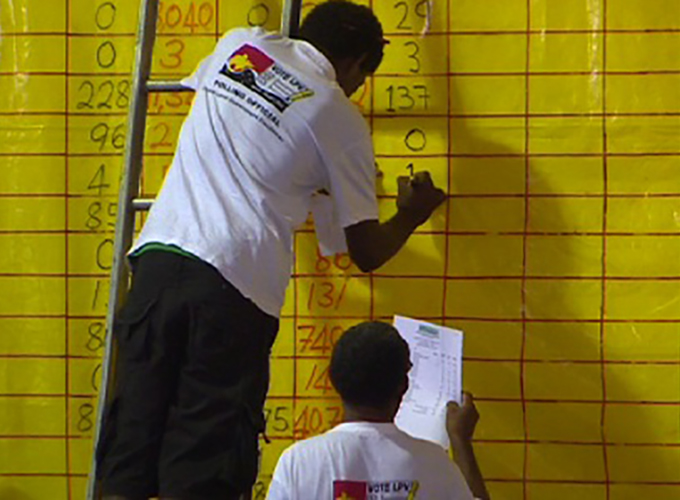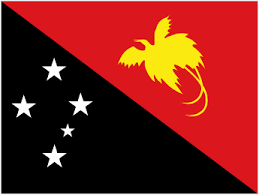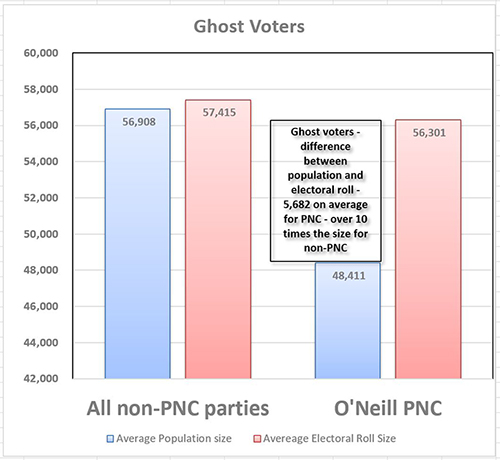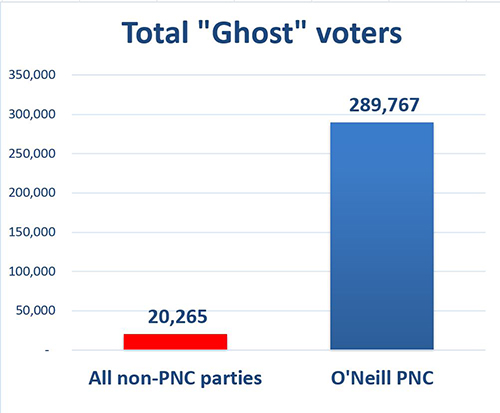
Pacific Media Watch Newsdesk
Statistical indicators suggest the Peter O’Neill government in Papua New Guinea has used its power of incumbency to “cook the books” in its favour, claims a new analysis by the independent website PNG Economics.
 Comparing the 2017 electoral roll with population estimates by electorate based on the 2011 census, the Electoral Commission has created nearly 300,000 “ghost voters” in O’Neill’s People’s Congress Party (PNC) controlled electorates.
Comparing the 2017 electoral roll with population estimates by electorate based on the 2011 census, the Electoral Commission has created nearly 300,000 “ghost voters” in O’Neill’s People’s Congress Party (PNC) controlled electorates.
“This is 5682 ‘ghost voters’ for every PNC sitting member. This is over 10 times the number of ‘ghost voters’ for non-PNC sitting members. PNC members are also being declared elected based on ‘mathematical impossibilities’,” the website said.
PNG Economics declares on its website that it provides “timely, accurate, frank and fearless advice”.
Key researcher of the website is Paul Flanagan who has a longstanding interest in public policy issues in Australia, PNG and the Pacifjc region. His 35-year public service career was evenly shared between Treasury/Finance and AusAID and he is director of Indo-Pacific Public Policy and Economics, a leading commentator on economic developments in PNG, and is a frequent contributor to the Devpolicy Blog.
“Papua New Guinea’s vibrant democracy, including its extraordinary diversity and combination of individual choice and clan loyalties, may still be able to overcome such electoral bias in favour of O’Neill,” said the economic analysis.
“This may depend on the Biblical and moral choices about to be made by new Independent members. May they choose wisely and morally, not just chasing the money politics of the PNC and its likely manipulation of the election, when they decide on PNG’s new government.
PNC’s army of ‘ghost voters’.”
O’Neill’s massive win
Just 14 of the 111 members of the new Parliament have been declared so far — including Prime Minister O’Neill with a massive 32,424 votes in his Ialibu-Pangia seat in the Southern Highlands — as counting continues after the two-week election that ended last weekend.
PNG Economics said that one “extraordinary indicator of electoral bias” was that O’Neill PNC supported electorates had — on average — an “extra” 5682 people on the electoral roll relative to their population.

The number of these “ghost voters” was more than 10 times larger than the average of 507 for non-PNC electorates, the website said.
“Overall, there were nearly 300,000 more people on the electoral roll in PNC electorates than the latest population census would suggest. This is much greater than the extra 20,000 in non-PNC electorates.
“It seems the cleansing of the 2017 electoral roll, assisted by Australia, was able to find nearly all the ‘ghost’ electors in non-government seats, but failed abysmally in seats held by the government.

“This is also a very sad comment on the quality of [the] Electoral Commissioner’s management of the election. Combined with his failure to maintain the confidence of the independent Electoral Advisory Committee, he should resign and give power to a more independent body,” PNG Economics said.
“This type of electoral bias has provided nearly 300,000 extra votes available to government electorates.”
As the election count continued — a key third stage of the four stage election process — there was still a great need for integrity from officials, scrutineers and police, PNG Economics said.
Key decisions ahead
“There are still key decisions ahead for the Electoral Commissioner and even the Governor-General. These decisions would be better informed if there was greater information sharing – this could help confirm the legitimacy of the election, the commentary said.
“Looking ahead, such analysis can also provide some benchmarks for hopefully making the 2022 election a much better and fairer election for whatever government emerges from this election.”
There was also a key stage for government coalition formation, the website said.
“As expected, no party will win an absolute majority. There is a clear coalition of parties that are anti-O’Neill, including former coalition partner National Alliance headed by the former Treasurer (who was sacked in part for exposing other budgetary games played by the O’Neill government on the debt to GDP ratio and economic growth – the type of games indicating a willingness for the O’Neill government to play games with the electoral numbers).”














































[…] Full Article: PNG’s ruling party has 300,000 ‘ghost voters’ in election, claims analysis | Asia Pacific Repo…. […]
Comments are closed.